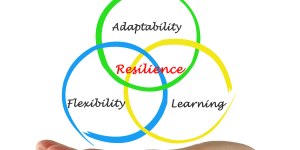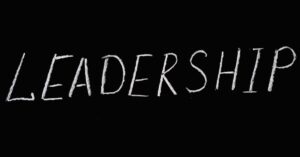Born between the mid-1990s and early 2010s, Generation Z brings a fresh perspective to the workplace with their digital fluency, entrepreneurial spirit, and passion for social causes. These digital natives value authenticity, diversity, and work-life balance, setting them apart from their predecessors
Managers face the challenge of understanding and harnessing the potential of Gen Z employees to drive innovation and success within their organizations. Adapting leadership approaches to align with their preferences for open communication, feedback, and flexibility is essential for creating a productive and engaged workforce.
By embracing the characteristics of Gen Z and fostering a supportive environment that values their input and growth, managers can cultivate a loyal and high-performing team. Stay tuned as we explore the strategies and benefits of effective Gen Z management in the workplace.
Table of contents
Embrace Diversity and Inclusion
Creating a diverse and inclusive work environment is key for the Gen Z workforce. Embracing diversity not only fosters innovation and creativity but also ensures a sense of belonging for all employees. Gen Z individuals value inclusivity and are more likely to thrive in an environment that celebrates differences.
Importance of Diversity and Inclusion
Embracing diversity and inclusion in the workplace is essential for attracting and retaining Gen Z talent. By fostering a culture that values different perspectives, backgrounds, and ideas, organisations can create a more dynamic and engaging work environment. Gen Z employees appreciate diversity not just in terms of ethnicity and gender but also in terms of experiences and ways of thinking.
Initiatives to Enhance Diversity and Inclusion
To promote diversity and inclusion, organizations can implement initiatives such as diversity training workshops, mentoring programs for underrepresented groups, and creating employee resource groups. Encouraging open dialogue and actively listening to diverse perspectives can also help in creating a more inclusive workplace culture. By valuing diversity and fostering a sense of belonging, companies can attract and retain top Gen Z talent.

Prioritize Flexibility and Work-Life Balance
In today’s dynamic work landscape, prioritizing flexibility and work-life balance can greatly appeal to Gen Z workers. Offering flexible job structures and fostering a healthy work-life balance can make a company more attractive to this generation.
Embracing Flexible Work Policies
Implementing flexible work policies, such as remote work options, flexitime arrangements, and compressed workweeks, demonstrates a company’s commitment to accommodating diverse lifestyles and needs. By allowing employees to work from home or choose their work hours, organizations empower individuals to achieve a better balance between personal and professional responsibilities.
Creating a Supportive Environment
Encouraging a supportive work environment where employees feel valued and trusted leads to increased job satisfaction and loyalty. Flexible policies that allow for time off to attend important personal events or manage unexpected circumstances emphasize the company’s understanding of the importance of work-life harmony.
Example of Flexible Work Policies
An example of a flexible work policy could include offering a “Work-from-Anywhere” scheme, where employees have the freedom to work from locations outside the traditional office setting. This approach not only promotes flexibility but also enhances productivity by enabling individuals to choose environments that best suit their working style.
Benefits of Prioritising Flexibility
By embracing flexibility and work-life balance, companies can attract top Gen Z talent who value autonomy, freedom, and a sense of control over their work lives. This inclusive approach not only contributes to a positive workplace culture but also fosters a more engaged and motivated workforce.
Leveraging Technology and Digital Platforms
In today’s fast-paced working environment, utilizing technology and digital platforms has become essential to thrive in the modern workforce, particularly for the tech-savvy Gen Z individuals. Let’s delve into how integrating technology can elevate productivity and efficiency in the workplace.
Digital Tools for Seamless Collaboration
Embracing digital tools like project management software, communication platforms, and cloud-based document sharing systems can enhance collaboration among team members. These tools enable real-time communication, file sharing, and project tracking, fostering a cohesive and productive work environment.

Automation for Increased Efficiency
Automation technologies streamline repetitive tasks, allowing employees to focus on high-value activities. Integrating automation tools for data entry, scheduling, and customer service can significantly boost efficiency and productivity, catering to the multitasking nature of Gen Z workers.
By embracing technology and digital platforms, organizations can empower their workforce to adapt to evolving trends and drive innovation, aligning with the preferences and strengths of the Gen Z demographic.
Provide Continuous Learning and Development Opportunities
In today’s fast-paced work environment, continuous professional development plays a crucial role in the growth and success of Gen Z employees. Companies need to provide ongoing learning opportunities to keep their workforce engaged and motivated. Let’s explore some effective methods for incorporating continuous learning within your organization:
Embrace Online Learning Platforms
Integrating online learning platforms into your company’s training programs can offer Gen Z employees the flexibility to upskill at their own pace. Platforms like Coursera, LinkedIn Learning, or Udemy provide a wide range of courses that cater to different skill levels and interests, empowering employees to pursue knowledge relevant to their roles.
Establish Mentorship Programmes
Pairing young employees with seasoned professionals through mentorship programs can facilitate knowledge transfer and skill development. Gen Z workers can benefit from the guidance and real-world insights of experienced mentors, helping them navigate challenges and broaden their perspectives.
Encourage Participation in Workshops and Seminars
Organizing workshops, seminars, and industry conferences can expose Gen Z employees to new ideas, trends, and best practices within their field. Encouraging participation in such events not only fosters continuous learning but also cultivates a culture of innovation and knowledge sharing within the organization.
Support Pursuit of Professional Certifications
Investing in professional certifications for Gen Z employees demonstrates a commitment to their career advancement. Whether it’s obtaining industry-specific certifications or acquiring leadership skills, supporting employees in their certification pursuits can enhance their expertise and credibility in the workplace.
Continuous learning and development opportunities not only benefit individual employees but also contribute to the overall growth and resilience of the organization. By fostering a culture of lifelong learning, companies can unlock the full potential of their Gen Z workforce and stay ahead in an ever-evolving business landscape.
Photo by Artem Podrez
Cultivate a Transparent and Authentic Company Culture
Transparency and authenticity in company culture are vital for fostering a positive work environment, especially for Gen Z employees. Let’s delve into how the principles of transparency and authenticity can significantly impact the overall dynamics within an organization.
Building Trust Through Open Communication
Creating a culture of transparency starts with open communication channels where information flows freely. When employees feel informed and involved in decision-making processes, it fosters trust and empowers them to contribute meaningfully to the company’s success. By encouraging open dialogue and feedback mechanisms, organizations can enhance employee engagement and overall satisfaction.
Embracing Diversity and Inclusivity
Authentic company cultures celebrate diversity and promote inclusivity. By valuing different perspectives, backgrounds, and ideas, organizations can create a welcoming environment where all employees feel respected and appreciated. Embracing diversity not only enriches the workplace but also drives innovation and creativity, making it a win-win for both employees and the company.
Encouraging Accountability and Responsibility
Transparency goes hand in hand with accountability and responsibility. Employees thrive in environments where there is a clear sense of ownership and accountability for their actions. By setting clear expectations and holding everyone, including leadership, accountable for their commitments, organizations can build a culture of trust and integrity that resonates throughout the workforce.
Promoting Work-Life Balance
Authentic company cultures recognize the importance of work-life balance and prioritize employee well-being. By offering flexible work arrangements, promoting mental health initiatives, and encouraging a supportive work environment, organizations can show their commitment to the holistic well-being of their employees. This not only boosts morale and productivity but also attracts and retains top talent, especially from the Gen Z demographic.
Fostering Continuous Learning and Growth
Transparency in company culture involves providing opportunities for continuous learning and growth. When employees have access to training, development programs, and career advancement pathways, it demonstrates the organization’s investment in their professional growth. By fostering a culture of learning and development, companies can nurture talent, boost retention rates, and stay ahead in a competitive market.
In essence, cultivating a transparent and authentic company culture is more than just a trend – it’s a fundamental aspect of creating a positive and productive workplace environment. By prioritizing transparency, embracing authenticity, and valuing open communication, organizations can build a culture that resonates with Gen Z employees and sets the foundation for long-term success.
Photo by RF._.studio
Embrace Entrepreneurial Mindsets and Innovation
In today’s dynamic work environment, embracing entrepreneurial mindsets and fostering a culture of innovation is crucial for the Gen Z workforce to thrive. Encouraging a mindset that values creativity, risk-taking, and forward-thinking can lead to groundbreaking ideas and solutions.
Creating a Culture of Innovation
Creating a culture that values innovation involves providing Gen Z employees with the autonomy to explore new ideas and approaches. By allowing them to take calculated risks and learn from failure, organizations can nurture a spirit of innovation that drives continuous improvement.
Encouraging Experimentation
Encouraging Gen Z employees to experiment and test new concepts can lead to innovative breakthroughs. Providing resources and support for their ideas, even if they don’t always succeed, can empower them to think outside the box and push boundaries.
Embracing Change and Adaptability
Innovation often requires embracing change and being adaptable to new technologies and ways of working. Gen Z employees thrive in environments that are open to change and provide opportunities for them to learn, grow, and evolve alongside the ever-evolving landscape of the workplace.
Leveraging Technology
Gen Z, being digital natives, have a natural affinity for technology. Leveraging their tech-savvy skills and providing access to cutting-edge tools can fuel their innovative capabilities and drive transformative change within the organization.

Providing Frequent Feedback and Recognition
In a dynamic work environment, offering frequent feedback and recognition is essential to engage and motivate Gen Z employees effectively. Gen Zers thrive on regular acknowledgment of their efforts and seek meaningful interactions with their superiors to enhance their professional growth. Here are some strategies to provide constructive feedback and recognition to Gen Z employees:
Embrace Open Communication Channels
Encourage an environment where feedback flows freely in both directions. Gen Z values transparency and appreciates when they can openly discuss their work progress and receive constructive criticism. Utilise platforms for regular check-ins and discussions to provide guidance and recognition promptly.
Personalise Feedback
Recognize the individual strengths and preferences of each Gen Z employee when providing feedback. Tailoring feedback to resonate with their aspirations and working style can foster a deeper connection and motivation. Personalized feedback shows that you value their unique contributions and are invested in their development.
Timely Acknowledgment
Offer timely recognition for achievements and milestones. Gen Z appreciates real-time feedback that acknowledges their hard work and dedication. Whether it’s a simple ‘Well done’ message or a public shoutout in a team meeting, timely acknowledgment motivates Gen Z employees to continue excelling in their roles.
Encourage Self-Reflection and Growth
Empower Gen Z employees to reflect on their performance and set goals for improvement. Encouraging self-assessment and self-improvement cultivates a growth mindset and demonstrates your commitment to their professional development. Support them in their journey towards achieving their career objectives through constructive feedback and guidance.
Foster a Culture of Continuous Feedback
Create a culture where feedback is not limited to formal performance reviews but is woven into the fabric of everyday interactions. Gen Z employees value ongoing feedback that helps them learn and grow consistently. By providing regular input on their work and progress, you demonstrate your investment in their success and development.
Celebrate Successes Together
Celebrate team accomplishments and individual achievements openly. Gen Z employees appreciate being part of a supportive and celebratory work environment. From small wins to significant milestones, sharing successes collectively boosts morale, encourages collaboration, and reinforces a culture of appreciation and recognition.
Photo by fauxels
Prioritize Mental Health and Well-being
In today’s fast-paced work environments, prioritizing mental health and well-being is crucial for the Gen Z workforce. Supporting mental health in the workplace is not only compassionate but also leads to increased productivity and employee satisfaction.
Importance of Mental Health Support
Work-related stress and pressure can take a toll on mental health. Employers must recognize the impact of mental well-being on job performance and overall happiness. By fostering a supportive environment, companies can enhance employee morale and reduce burnout.
Implementing Supportive Practices
- Encourage Open Communication: Create avenues for employees to express their feelings and concerns without fear of judgment. Regular check-ins and feedback sessions can help employees feel heard and supported.
- Promote Work-Life Balance: Emphasise the importance of maintaining a healthy balance between work and personal life. Encourage employees to take breaks, utilize their holiday entitlement, and disconnect after work hours.
- Provide Mental Health Resources: Offer access to mental health resources such as counseling services, workshops on stress management, and mental health awareness programs. These initiatives can empower employees to seek help when needed.
Supporting mental health in the workplace not only ensures the well-being of employees but also cultivates a positive company culture where individuals can thrive both professionally and personally.
Photo by Daniel Reche
Foster Collaboration and Team-Building
Encouraging collaboration and fostering team-building activities in the workplace can greatly benefit Gen Z employees. By creating an environment that promotes teamwork and cooperation, organizations can enhance productivity and engagement levels among this demographic.
Improving Communication Channels
Effective team-building exercises provide Gen Z employees with the opportunity to enhance their communication skills. By engaging in group activities, they learn to express their ideas clearly and listen actively to their peers. Strengthening these communication channels can lead to smoother workflows and better project outcomes.
Building Trust and Camaraderie
Team-building activities help in establishing trust and camaraderie among Gen Z employees. When individuals work together towards a common goal outside of their usual tasks, they develop a sense of unity and mutual respect. This trust-building translates into stronger working relationships and improved collaboration within teams.

Enhancing Problem-Solving Skills
Collaborative work environments provide Gen Z employees with the opportunity to hone their problem-solving skills. By working together to overcome challenges and obstacles, they learn to think creatively and strategically. This skill development is invaluable in a fast-paced and dynamic work setting.
Boosting Employee Engagement
Engaging in team-building activities can boost employee morale and motivation among Gen Z workers. Feeling connected to their colleagues and the organization as a whole fosters a sense of belonging and purpose. As a result, Gen Z employees are more likely to be engaged and committed to their work.
Incorporating team-building and collaborative practices into the workplace not only benefits Gen Z employees but also contributes to a positive and thriving organizational culture. By creating opportunities for teamwork and shared experiences, businesses can cultivate a dynamic and cohesive workforce.
Lead by Example and Embrace Change
In a dynamic work environment embraced by Gen Z, leading by example and embracing change are crucial for effective leadership. Managers need to showcase adaptability and foster a culture of openness to change that resonates with the values of the Gen Z workforce.
Demonstrating Adaptability
One of the key traits of successful leaders in the Gen Z era is adaptability. Leading by example in this aspect involves being open to new ideas, approaches, and technologies. By demonstrating a willingness to adapt and learn, managers inspire their teams to embrace change and innovation.
Fostering a Culture of Innovation
Embracing change means creating a culture that nurtures innovation and creativity. Managers should encourage team members to think outside the box, experiment with new solutions, and challenge the status quo. By fostering a culture of innovation, leaders empower Gen Z employees to contribute their unique perspectives and ideas.
Setting Clear Expectations
Leading by example also includes setting clear expectations for change and guiding employees through transitions. Managers should communicate openly about upcoming changes, provide support and resources for development, and actively involve team members in the change process. This proactive approach helps build trust and engagement within the team.
Encouraging Continuous Learning
Gen Z values continuous learning and personal development. Leaders who embrace change model the importance of lifelong learning and skill growth. Encouraging employees to upskill, offering training opportunities, and providing feedback for improvement are ways to support the workforce in adapting to change and staying competitive in the evolving landscape.
By leading by example and embracing change, managers can cultivate a vibrant work culture that aligns with the values of the Gen Z generation, driving innovation, growth, and success in the workplace.

FAQs
Navigating the Gen Z workforce comes with its own set of challenges and opportunities. Here are some frequently asked questions about managing and engaging with the Gen Z workforce:
How can companies attract Gen Z talent?
To attract Gen Z talent, companies need to showcase their commitment to social responsibility, diversity, and inclusivity. Highlighting opportunities for personal growth, flexible work arrangements, and a positive work culture can also appeal to Gen Z individuals. Embracing digital recruitment strategies and utilising social media platforms can help reach out to this tech-savvy generation.
What are the key differences between Gen Z and other generational cohorts?
Gen Z individuals are known for their tech proficiency, entrepreneurial mindset, and desire for meaningful work. They value diversity, authenticity, and purpose-driven activities. Understanding these differences can help in tailoring management approaches and communication styles to effectively engage and motivate Gen Z employees.
How can workplaces create an inclusive environment for Gen Z employees?
To foster inclusivity, workplaces should celebrate diversity, provide equal opportunities for growth and development, and ensure that all voices are heard and respected. Encouraging open dialogue, implementing anti-bias training, and promoting a culture of acceptance can make Gen Z employees feel valued and appreciated.
What feedback methods work best for Gen Z employees?
Gen Z employees appreciate immediate and constructive feedback. Utilizing digital feedback tools, offering regular check-ins, and recognizing and rewarding their contributions in real time can resonate well with this generation. Providing clear guidelines for improvement and growth can also help in keeping Gen Z employees motivated and engaged.
How can companies encourage creativity among Gen Z workers?
To foster creativity, companies should create a work environment that encourages experimentation, innovation, and risk-taking. Empowering Gen Z employees to think outside the box, collaborate with diverse teams, and pursue passion projects can inspire creativity and drive fresh ideas within the organization.
Embracing the unique characteristics and preferences of the Gen Z workforce can not only attract top talent but also drive innovation and growth within companies. By adapting management practices to resonate with Gen Z values and expectations, organizations can create a dynamic and inclusive workplace that nurtures the potential of this generation.
Conclusion
In conclusion, embracing the unique characteristics of the Gen Z workforce is crucial for businesses aiming for success in today’s ever-evolving landscape. By understanding their preference for technology, flexibility, and purpose-driven work, companies can effectively engage and manage this generation of digital natives. Leveraging their diverse perspectives and encouraging open communication can lead to increased innovation and productivity within the workplace. Embracing change, adapting swiftly, and fostering a culture of inclusivity are key elements to unlocking the full potential of the Gen Z talent pool. As businesses navigate the future of work, integrating these strategies will be paramount in driving growth and sustainability.
Relates Links:















